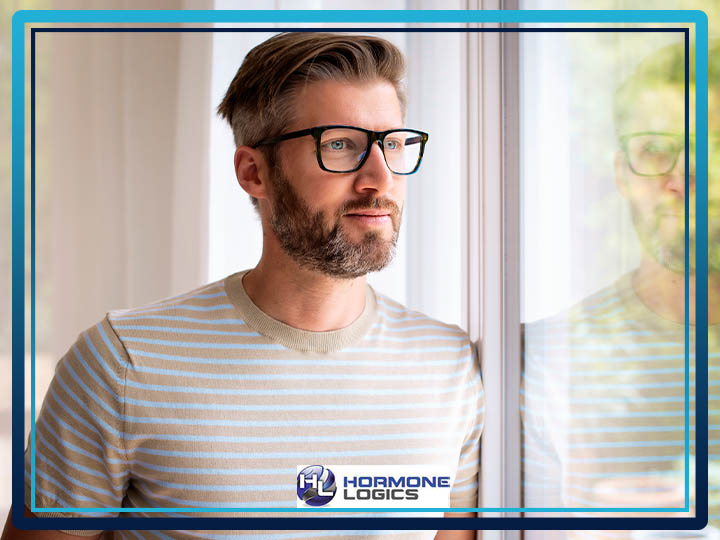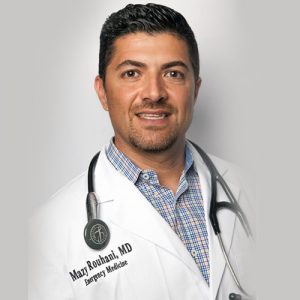Learn About Low Libido and how Methods like Hormone Therapy in West Palm Beach, FL, can Help.
Low libido, often associated with the aging process, is a subject that needs attention and empathy. As individuals get older, they experience hormonal shifts, lifestyle adjustments, and evolving health factors that can contribute to a decline in sexual desire.
It’s important to dispel the common misconception that reduced libido is an inevitable aspect of growing older. Supported by research, the ability to maintain a fulfilling sex life in one’s later years is not only achievable but also offers significant benefits.
Recognizing and addressing low libido among older adults is crucial, given its substantial impact on their overall well-being and life satisfaction.
This blog will explore low libido, its impact on the lives of aging adults, and the pivotal role of a method like Hormone Therapy in West Palm Beach, FL, in treating it.
Hormone Replacement Therapy for Menopause and Andropause can lead to improved strength and vitality, a more satisfying sex life, improved moods and cognition, better sleep, and healthier hair, skin, and bones.
What is Low Libido?
Low libido, often referred to as a low sex drive, is a noticeable reduction in one’s frequency and intensity of sexual desire. It can be a temporary condition, or it may also persist over the long term.
This aspect of one’s sexuality is commonly known as “libido,” encompassing the overall drive and desire to engage in sexual activities, whether with a partner or through self-stimulation.
It’s important to understand that libido is a multifaceted aspect of human sexuality, influenced by certain biological, psychological, and social factors. On the biological front, sex hormones such as testosterone and estrogen, as well as neurotransmitters like dopamine and oxytocin, are crucial in regulating libido.
Libido, however, is not a one-size-fits-all concept. It naturally varies from person to person, with fluctuations occurring throughout an individual’s lifetime. There’s no universal yardstick for the “right” or “normal” level of libido because it hinges on an individual’s unique preferences and life circumstances.
What are the Symptoms of Low Libido?
Various symptoms can indicate one is experiencing low libido. Common symptoms of low libido often include a diminished interest in sexual activity, a reduced frequency of sexual thoughts or fantasies, and a notable decline in the initiation of sexual encounters.
It also includes challenges in becoming sexually aroused, which might lead to difficulties in achieving or maintaining an erection (in men) or a lack of vaginal lubrication (in women).
Emotional symptoms often accompany low libido, such as feeling distressed or anxious about the decrease in sexual desire and experiencing strain in intimate relationships. Additionally, a decline in self-esteem and self-confidence related to one’s sexuality can be another indicator of low libido.
What are the Causes of Low Libido?
Low libido can have varying underlying causes. Aging is a significant factor that can contribute to low libido. As individuals grow older, their bodies naturally undergo changes in hormone levels, particularly a decrease in testosterone in men and estrogen in women. These hormonal shifts can lead to a decline in sexual desire.
However, aging is just one facet of a complex web of factors influencing low libido. Other common causes may include stress, relationship problems, depression, anxiety, chronic medical conditions, medications, and lifestyle factors like excessive alcohol consumption or inadequate sleep.
Understanding the specific causes is essential to address and manage low libido effectively, and it often requires a comprehensive evaluation by a healthcare professional to identify and treat the root issues.
Is it Necessary for Older Adults to Remain Sexually Active?
Maintaining sexual activity is a vital component of overall health and well-being, contributing to a greater enjoyment of life for adults as they age. Contrary to popular belief, age does not render individuals asexual, even though they might adapt their sexual activity due to physiological changes.
It’s essential to challenge the notion that older adults are neither sexually active nor interested in sex. In a study conducted in England, a significant proportion of older adults reported being sexually active.
- For example, 86% of men and 60% of women aged 60-69, 59% of men and 34% of women aged 70-79, and 31% of men and 14% of women aged 80 or older were sexually active.
Engaging in sexual activity as adults age can have significant health benefits, as supported by recent research findings. The statistics reveal that individuals who report a decrease in sexual desire or frequency of sexual activities are more likely to face health challenges, including the development of chronic illnesses that can limit their daily activities.
Furthermore, the research underscores that older adults who maintain their sexual activity tend to enjoy life more and report better well-being compared to those experiencing a decline. This highlights the importance of sexual activity not only for physical health but also for overall life satisfaction and mental well-being.
How is Low Libido Treated?
When it comes to treating low libido, there are various approaches. For many individuals, hormone therapy can play a significant role in revitalizing their sexual desire. Hormone therapy is a specialized treatment that can be tailored to both men and women.
In women, hormone replacement therapy can be used to address low libido, especially during menopause, by replenishing estrogen and sometimes testosterone levels. For men, testosterone replacement therapy is a standard option that can help restore healthy testosterone levels and improve sexual desire.
However, it’s essential to consult with a healthcare provider to determine the most appropriate treatment plan, as the causes of low libido can vary widely.
Alongside hormone therapy, lifestyle changes, addressing underlying emotional factors, and relationship counseling can also be valuable components in the comprehensive treatment of low libido.
Learn more here: The Best Hormone Therapy Clinic in West Palm Beach, FL
Experience the most Effective Hormone Replacement Therapy in West Palm Beach, FL!
 If you or someone you know is experiencing the challenges of low libido, it’s time to take a proactive step to revitalize your sexual desire and overall well-being.
If you or someone you know is experiencing the challenges of low libido, it’s time to take a proactive step to revitalize your sexual desire and overall well-being.
Hormone replacement therapy can be a transformative solution, and when it comes to hormone therapy in West Palm Beach, FL, there’s no better choice than Hormone Logics.
With a commitment to enhancing the quality of life through tailored programs, including bioidentical hormones, menopause treatment, and andropause treatment, Hormone Logics stands out as a trusted partner on your journey to renewed vitality.
Contact Hormone Logics today at (800) 754-1481 to set an appointment. Our clinic is located at 900 Osceola Dr #222B, West Palm Beach, Florida, a walking distance from restaurant La Granja and Marathon Gas Station.
To see our customer reviews, click here.









